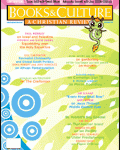Any responses to the NY Times piece End the University as We Know It? Another piece highlighting the concerns of specialization and the slave labor by graduate students in the research universities with diminishing chance of reward after pushing through the system. The dirty secret of higher education is that without underpaid graduate students to help in laboratories and with teaching, universities couldn't conduct research or even instruct their growing undergraduate populations. That's one of the main reasons we … [Read more...] about End the University as We Know It
academic culture
Keeping “to-do lists”
Are to-do lists a helpful tool to getting things done? Or do you find them frustratingly long and seemingly insurmountable? Or do you find them buried under papers or in old documents/post-it notes on your screen, wall, door? Or do you somehow ignore to-do lists entirely? Thanks to Andy Crouch's 5 Questions post on to-do lists, I've had quite a few good conversations with friends and family on this topic. Two pastors of my local congregation have given some interesting feedback on the topic. One quipped that he … [Read more...] about Keeping “to-do lists”
Thinking with Your Hands: Part II
What does Nicholas Wolterstorff make of Richard Sennett's The Craftsman (Yale University Press, 2008)? About half-way through the review, Wolterstorff critiques Sennett's advocacy of animal laborans' (i.e., the laboring human being, who asks How?) ability to function separate from homo faber (i.e., the human being who asks Why? and assumes the role of guide/critic to animal laborans) or at least a conversation in community regarding the ethics of particular crafts. In particular, Wolterstorff uses Sennett's … [Read more...] about Thinking with Your Hands: Part II
Thinking with Your Hands: Part I
In the March/April edition of Books & Culture: A Christian Review, Nicholas Wolterstorff's review of Richard Sennett's The Craftsman (Yale University Press, 2008) raises concerns of particular relevance to Emerging Scholars. First, Wolterstorff digs into Sennett's critique of the lower status given to animal laborans (i.e., the laboring human being, who asks How?) in relationship to homo faber (i.e., the human being who asks Why? and assumes the role of guide/critic to animal laborans). Some quotes from The … [Read more...] about Thinking with Your Hands: Part I
Reading the Mind of God
How do you properly respect and frame the work of one who has courageously pressed on with his life despite the diagnosis of ALS (1962 at the age of 21), discovered black-hole evaporation (1974), contributed the most to our understanding of gravity since Einstein, and achieved world-wide fame while searching for a complete theory of everything which he claims will reveal the mind of God?* I ask that question quite literally as I've been thinking about what to write regarding Stephen Hawking for several weeks. Quite … [Read more...] about Reading the Mind of God
